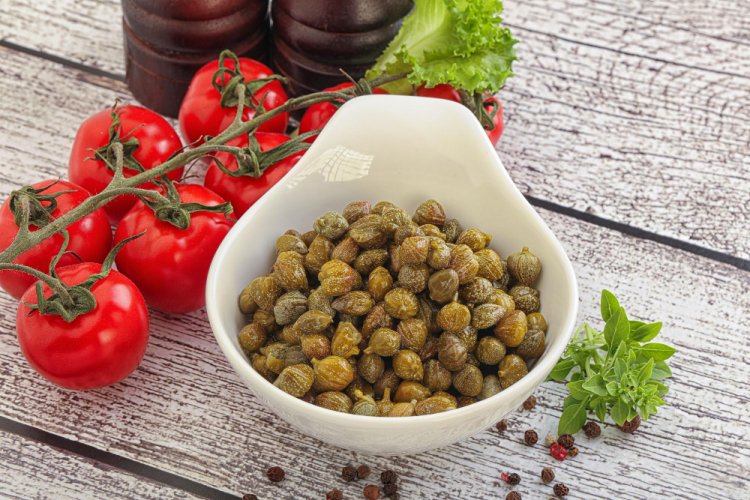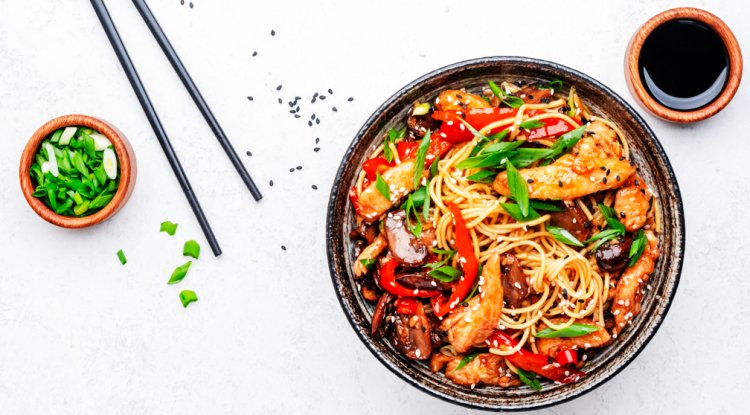Unveiling the Essence of Capers: Origins, Culinary Applications, and Nutritional Benefits
Capers: A Culinary Treasure Capers, those small but vibrant bursts of flavor commonly associated with Mediterranean cuisine, have a rich history steeped in culinary tradition and health-promoting properties. These petite flower buds, cherished for their tangy punch and versatility in the kitchen, offer a fascinating journey into the world of gastronomy. In this comprehensive exploration, we'll delve deeper into the origins of capers, their diverse culinary applications, and the array of nutritional benefits they provide.

Origins and Cultivation
Capers, scientifically known as Capparis spinosa, are the immature flower buds of the caper bush, a resilient perennial plant native to the Mediterranean basin. Flourishing in rocky, arid terrains along coastal regions, the caper bush thrives in environments characterized by ample sunlight and well-drained soil. While predominantly found in regions such as Italy, Spain, Greece, and Morocco, caper cultivation has expanded to various parts of the globe with similar climatic conditions.
Traditionally harvested by hand, capers undergo a meticulous process of selection, with the buds plucked before they bloom into delicate white flowers. Following harvest, capers are either sun-dried or cured in brine or vinegar, preserving their distinctive flavor profile and enhancing their culinary appeal.
Culinary Versatility
Renowned for their bold, briny flavor, capers serve as a quintessential ingredient in Mediterranean cuisine, imparting a zesty kick to an array of savory dishes. From classic pasta sauces and tangy salads to succulent seafood preparations, capers elevate the taste profile of numerous culinary creations. Their versatility extends beyond regional boundaries, with capers seamlessly blending into diverse global cuisines.
In Italian gastronomy, capers feature prominently in iconic dishes such as Chicken Piccata, where their piquant essence complements the savory richness of tender chicken breasts. Likewise, in French cuisine, capers lend their distinct tanginess to sauces like Sauce Rémoulade, enhancing the flavor of delicate seafood and poultry dishes. Furthermore, capers add a sophisticated touch to appetizers, charcuterie boards, and gourmet sandwiches, showcasing their culinary adaptability.
Nutritional Benefits
Beyond their culinary allure, capers boast an impressive array of nutritional benefits, making them a valuable addition to a wholesome diet. Rich in antioxidants such as quercetin and rutin, capers exhibit potent anti-inflammatory and immune-boosting properties, potentially reducing the risk of chronic diseases and bolstering overall health. These antioxidants scavenge harmful free radicals, safeguarding cells from oxidative stress and promoting longevity.
Moreover, capers are a low-calorie, nutrient-dense food, offering a generous supply of essential vitamins and minerals. Bursting with vitamin K, capers support bone health and blood clotting mechanisms, ensuring optimal skeletal integrity and cardiovascular function. Additionally, their vitamin C content fortifies the immune system, while calcium and magnesium contribute to robust musculoskeletal health and nerve function.
In summary, capers encapsulate a wealth of culinary heritage and nutritional excellence, embodying the essence of Mediterranean gastronomy. From their humble origins as wildflower buds to their esteemed status as culinary gems, capers continue to captivate palates worldwide with their bold flavor and health-promoting properties. Whether enjoyed in classic pasta dishes, gourmet sauces, or inventive appetizers, capers exemplify the artistry of gastronomy, inviting exploration and appreciation at every culinary encounter.
#Capers #MediterraneanCuisine #HealthyEating #CulinaryArt #Nutrition #FoodHistory #Gastronomy #FoodCulture #Antioxidants #HealthyCooking #MediterraneanDiet #FlavorfulFood #FoodieFinds #CookingTips #FoodieAdventure #DeliciousDishes
Disclaimer:
The information provided in this article is for educational purposes only and should not be considered medical advice. If you have any health concerns or are experiencing symptoms, it is important to consult with a healthcare professional, such as a doctor or clinic, for proper diagnosis and treatment. Always seek the advice of your doctor or other qualified health provider with any questions you may have regarding a medical condition. Do not disregard professional medical advice or delay in seeking it because of something you have read in this article.
What's Your Reaction?





















